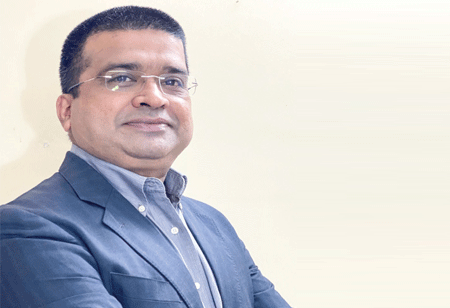
The telecom industry is known for adapting and promoting new technologies earlier than any other sector and acts as the gateway for most sectors to adopt or switch to cutting-edge technologies. However, the sector struggled to keep up with the increase in demand for digital technologies during the pandemic. To compound the matter further, customer expectations made it harder, and business processes also got strained.
Today the need for greater data integrity, intelligent decisions, operational efficiency with the adoption of Unified and Autonomous technologies have become business-critical for telcos and all industries. Accelerating investments in such a paradigm shift will enable Telcos to evolve into “The Unified Enterprise” that delivers unified customer to cash journey, 100% data integrity, zero-touch customer journey, and autonomous resource management.
Some of the largest telecom companies across the globe are working with disruptive tech partners on developing next-gen technologies with the desire to bridge the gap between the digital and physical world. The goal is obvious, renewing focus on customer engagement and experience through the highest quality of connectivity.
Virtual Workspaces On The Rise
Given the rise in the work-from-anywhere situation during the pandemic, telecommunications kept virtual workspaces connected and going. In India, data traffic grew by approximately 60 times in the past 5 years, and in 2020, it further grew by 36% year-over-year, primarily due to the rise in 4G data consumption. This phenomenal growth in data consumption has driven the demand for enhanced broadband services. There is a higher need for robust and revolutionary technologies to keep up with the demand and continue providing uninterrupted network facilitating seamless working conditions. This is where investments in unified enterprises that deliver the zero-touch unified customer to cash journeys will be the game-changer.
To protect the corporate data, first thing to ensure is that the data never leaves the corporate environment and enters the user endpoint
Enterprise Operating System will deliver “The Unified Enterprise” powered by AI, ML, and IoE (Internet of Everything)
With the introduction of Artificial Intelligence, Machine Learning, IoT, and Cloud into processes and systems, telcos are embracing a digital ecosystem. The question, however, remains - are telcos taking advantage of these advancements? According to IDC, 63.5% of telecom operators are making new technology investments in AI and Robotic Process Automation(RPA) to reposition resources from mundane, time-consuming operations to higher value adds. AI, ML, and RPA will help in predictive maintenance, detecting sources of excessive resource wastage, increasing asset security, routine report preparation and dissemination, responding to partner queries, reducing manual sales order processing, etc, thus driving optimal utilization of resources. Also, 4G & 5G deployments will act as a catalyst towards the integration of newer technologies.
The Rise In Network Growth On The Back Of Increased Media Consumption
Affordable smartphones, low data prices, and ease in the provisioning of services are some of the contributors to the Indian broadband market. Add to that, some lucrative packages that include unlimited calling, data, and OTT have driven the fixed broadband network growth. The pandemic saw an increase in technologies such as fixed wireless access (FWA) that have proven to be cost-efficient broadband alternatives enabling digitalization, and meeting the demand for mobile and data connectivity.
The Way Forward
The pandemic has accelerated the need for unified solutions by at least five years. The telco leadership must look at adopting cutting-edge technologies that will enable them to be evolutionary and future-proof. Enterprise operating systems, although at a nascent stage, have the capability to accelerate the digital unification in the telecom sector. Imagine a day where telcos will be “The Unified Enterprise” leveraging the arrival of 5G. The need is greater than ever.
We use cookies to ensure you get the best experience on our website. Read more...